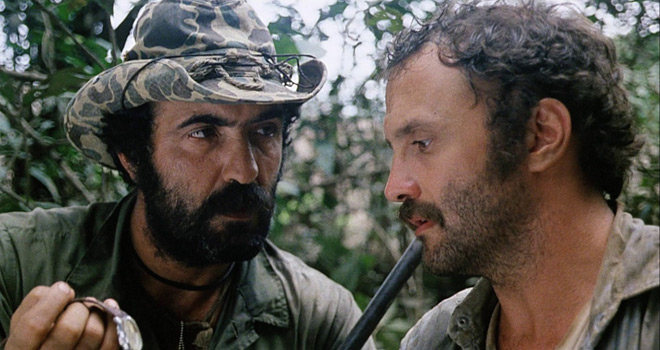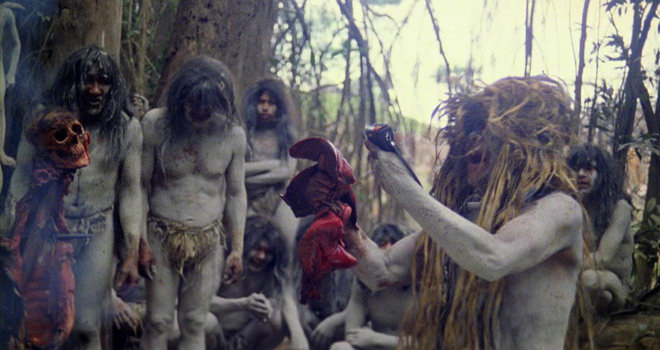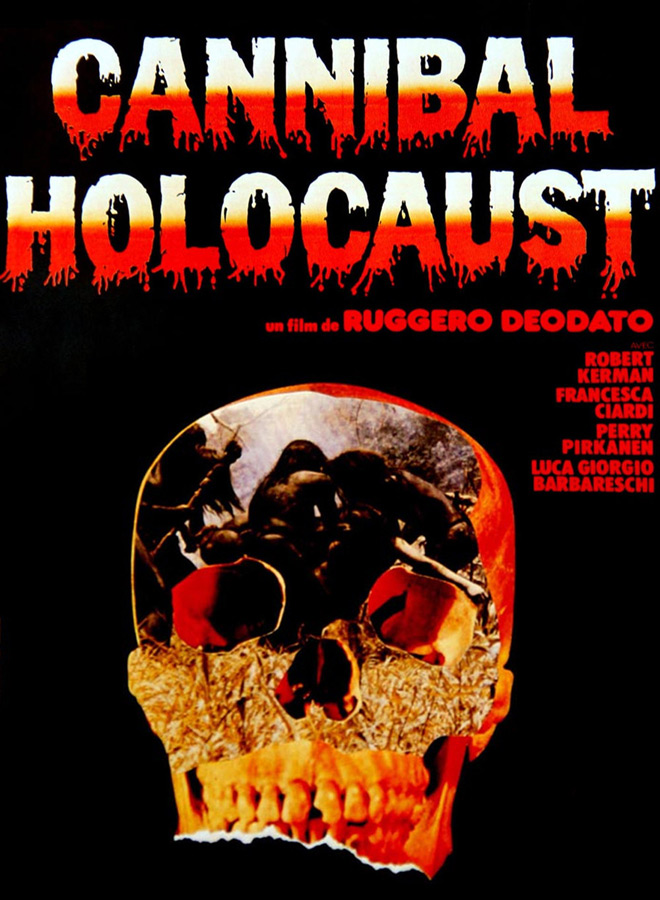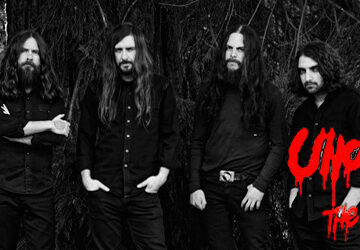This week in Horror movie history, on Thursday, February 7th in 1980, Milan, Italy clutched its pearls as Director Ruggero Deodato foisted upon them his masterpiece of brutality, Cannibal Holocaust.
People want to feel primal. They want to be shocked, aroused, emotionally battered. They want to experience anger and passion. They want to incite and inflict violence. They go to work and have the same conversations with the same people, day in and day out. There is no conflict or resistance. There is no novelty. Deodato’s Cannibal Holocaust cracked the vent for them. It made people feel all of those torrential emotions and multiplied those feelings by a factor of ‘queasiness.’

By today’s standards, Cannibal Holocaust wouldn’t have gotten made. The things shown and carried out on screen would get a 2018 production shut down. The studio in charge of greenlighting it would face monumental backlash and would likely be shuttered when the reports hit Variety magazine. There would be lawsuits and a media frenzy. The blogosphere would rumble and buckle from the hordes of indignant YouTube personalities racing to display their virtue. Society today has a very different relationship with disgust than it did in the 1980s. There are many films that claim to be “the most controversial film ever made.” That kind of melodramatic tagline puts incredulous butts in seats. Cannibal Holocaust, however, can claim that title 38 years later without pretense, in the heart of the internet age.
Though lost in the dust kicked up by the profane visuals, Cannibal Holocaust‘s story and message is a potent one. It follows Dr. Harold Monroe (Robert Kerman: Debbie Does Dallas 1978, Night of the Creeps 1987) into the jungle as he and his attachment of guides and guards venture into the jungle in search of a lost band of documentarians who set out to capture a never-before-seen enclave of Yanomamo people crudely called, “the tree people.” As the fable goes, if you see the tree people, they’ll be the last people you see; and so it went for these young filmmakers. Dr. Monroe finds the remains of these documentarians and through brute force and cunning subterfuge, he makes it back to civilization with the groundbreaking footage captured by the late auteurs.
The second half of the film is decidedly more grim. The company who funded these expeditions wants to view and presumably market this footage. They witness their ragtag group of guerilla filmmakers set fire to village structures and force the villagers to stay inside them for the shot. The male filmers gang-rape a village woman. They stand idly by, filming, as a horribly burnt village woman dies on a riverbank. The audience almost feels a morbid sense of gratification when the vast number of tribes people realize they outnumber these pale white folks and dismember, disembowel, and consume them, wholesale.

What the producers see on the film, carried out by the filmmakers Mark Tomaso (Luca Barbareschi: Private Affairs 1987, The International 2008), Faye Daniels (Francesca Ciardi: Mosca addio 1987, Death Walks 2016), Jack Anders (Perry Pirkanen: City of The Living Dead 1980, Cannibal Ferox 1981), and Alan Yates (Gabriel Yorke: Dynasty series, Idle Hands 1999), horrifies them in such a meaningful way that, despite the money they sunk into retrieving this footage, they decide finally to burn it. The audience is left in catatonia as Dr. Monroe ponders, “I wonder who the real cannibals are.”
Cannibal Holocaust, in its time, raked in over $200 million, internationally. It was out for a whopping ten days before the authorities took heed and confiscated the film. Deodato’s magnum opus was called every name on the spectrum and taken to court to discern what was real, what was not, and whether any of it was legal. It was true that it was shot in the wet Amazon rainforest near a town called Leticia and used authentic Yanomamo tribespeople. It was also true that real animals were graphically slaughtered for the sake of the film. There were lingering depictions of rape and impalement that were to be gotten to the bottom of.
The upshot of all was that Director Deodato was charged with—though not convicted of—the murder of a Yanomamo tribe woman in the impalement sequence. Within their contracts, a stipulation was included that required the cast to disappear from the public eye for a term of one year to lend an air of realism to the film, so during the court case, the absence of the cast members further incriminated Deodato and ensnared him deeper in legal molasses. At length, the court received evidence that everyone involved was alive and accounted for. It was ruled that Cannibal Holocaust was not a snuff film, whereupon all charges were dropped.

When asked how he feels about the film and the outrage that buffets it, Deodato cites real atrocities out-taken by men every day. Beheadings, rapes, child molestation. In a 2011 interview with Mark Stafford, he said of Cannibal Holocaust’s bleak outlook on humanity, “My film is fiction… I’m annoyed that there is a reaction to violence in my films, but no reaction to the terrifying violence happening out there every day.” Deodato denounces Cannibal Holocaust’s classification as Horror. The Horror community has embraced it and claimed it as its own, but it is closer to a no-holds-barred dramatic Action film with profoundly horrific sequences.
Simply put, Cannibal Holocaust will make one hurt inside, either from nausea or from knowing that humanity has the propensity for that level of violence and xenophobia; it seems to only be accelerating as time progresses. Cannibal Holocaust peels back the skin of humanity to show the demon that can live within us if we feed it. It is a Fictional Documentary about a Fictional Documentary. It deserves more than to be relegated and boiled down to a “gory Horror film.” It deserves a place as one of the most grotesquely infamous films in not just Horror movie history, but movie history, at large.




No comment